“Who are you?” said the Caterpillar.
This was not an encouraging opening for a conversation.
Alice replied, rather shyly, “I—I hardly know, Sir, just at present—at least I know who I was when I got up this morning, but I think I must have been changed several times since then.”
“What do you mean by that?” said the Caterpillar, sternly. “Explain yourself!”
“I can’t explain myself, I’m afraid, Sir,” said Alice, “because I am not myself, you see.”
Alice’s Adventures in Wonderland by Lewis Caroll
‘Who am I?’ is a pretty big question. It can be easy to rattle off some likes and dislikes in response to this enquiry, or to talk about your job. “I’m a real estate agent and I live in Melbourne and I have 2.3 kids and I enjoy Dungeons and Dragons and vinyl records.”
Is that it?
Well, not quite.
Our personal identity is shaped over our lifespan. While we can claim things like our hobbies, work and family as part of our identity, there are many other things that contribute to Who I am, and getting clear about what these things are allows us to have a stronger sense of self. This, in turn, may allow us to feel more centred and calm in the face of challenge, and help us to know what boundaries and decisions will best serve us as we move through life.
For most of us, personal identity becomes something we start to explore in our teen years. Identity can be incredibly inconsistent at this time. Which is, of course, the point of adolescence; you’re learning who you are and what you care about, but for some reason everyone always says that “you’ll figure it out eventually”.
All of a sudden, you’re a grown adult. You pay bills, you drink wine, you buy your own pots and pans…and yet a part of you sometimes still feels as strange as you did when you were in high school.
This uncanny feeling of ‘something not quite fitting’ is fairly common, and it might just mean that your sense of self – your identity – is a little bit wobbly.
Shifting Identity
Feeling uncertain about who you are and what you stand for can be stressful and unsettling.
On the other hand, being open to having your opinions shift, thoughts change, and routines adapt are GOOD THINGS. Being fluid and in a constant state of growth is a good thing.
For some of us, though, there’s a constant internal sense that there’s no foundation of who you are. You can imagine it like building a house. You can buy a house and renovate it, demolish it, rebuild it, and renovate it AGAIN as much as you want, as long as it has a good solid foundation. But if your house is built on stilts on the edge of a sandy cliff, well…the risk of everything collapsing is pretty high with one wrong move.
But what do you do when you feel like you should have a solid foundation but you still don’t? Lots of people love to suggest going to therapy, which gets a big thumbs up from me!
Naturally, there’s often some apprehension here. How on earth could talking to someone once a week make that kind of difference in your life? How could us spending time together actually help the foundation of your Self become stronger?
Goals
Goals might be described as an experience that you can achieve – it’s something that you work towards, and once you’re there, you find a new goal. Goals can be short-term or long-term, and we usually have many that span across the different aspects of life. This could be from health goals, fitness goals, relationship goals, financial goals, career goals, spiritual goals…the list goes on.
Many of us are probably victim to ye olde New Year’s resolutions and say things like, “my goal this year is to go to the gym 1200 times a week!”. Sure, it’s a goal. But when goals feel impossible to reach, it’s unlikely that we’ll succeed with it in the long-term, which can contribute to really low self-esteem.
In therapy, we can identify goals that aren’t helpful, like the one listed above, and help you explore SMART goals. No, I’m not being cheeky and saying your goals are silly. SMART goals are goals that are Specific, Measurable, Achievable, Realistic, and Time-bound. When your goals are aligned with this, it helps you to actually achieve them, feel a sense of accomplishment, and learn to trust yourself.
Values
While goals are a thing that you can achieve, values are more like principles or pillars that guide your behaviour, and perhaps influence your goals. Values can change or develop as our lives change, and usually most people have a set of ‘core’ values that stay consistent over time. There are heaps out there, but as an example, you might find that you value education, adventure, excitement, independence, connection, or something else.
If you aren’t very aware of your values, you might notice that when you agree to something, it feels deeply unsettling for some reason, and you aren’t sure why. It could be because it goes against your values! This might look like a good friend asking you to come out to a new bar that opened. You attend and have a few drinks, but you were kind of unhappy about it the whole time for some reason. If we dig a bit deeper, we might find that you value health, which has meant keeping a good sleeping routine and not drinking alcohol…and you just did those things! This strange feeling of feeling kind of unhappy, uncomfortable, or a bit ‘off’ is your body’s way of communicating something to you.
In sessions, we can play around with finding out what those values are, and how they interact with you in your daily life. There are a few ways that we can do this, which could include helping you to deeply consider the differences between moments where things felt ‘off’ versus when things feel great, or even some games and exercises specifically created for this.
Parts
You’ve probably said something like, “a part of me just wants to scream right now!” at some point in your life. Have you ever wondered about that part? Who they are, what they look like, how old they are, what they want, what it feels like to be in your body in that moment?
I know, it sounds a bit outlandish. At the end of the day, are they not just different thoughts? Sure, you could think of it that way. But when we consider parts-based frameworks, you could think of yourself like a great big oak tree.
Hmm…let’s stick with this metaphor and see how it goes!
You have your big trunk, which you could think of as the foundation of your identity, your sense of Self. But coming out of the trunk are all these smaller branches and leaves, with different shapes, lengths, and thicknesses. You could think of these as your parts. While they’re connected to the trunk, they’re also unique in their own way; one might have a nest growing, another might have less leaves or more leaves than the other branches. While more attention on the main trunk of the tree can be better for its growth, you might be preoccupied with one of these branches, or get distracted by it and forget about yourself for a moment.
This could look like visiting your parents’ house for a short time, and realising that you’ve just run into your childhood bedroom to pout because your mum told you she didn’t like your shirt…just like when you were 14 years old! Rationally, you might be thinking, “wow, I’m a grown up, what the heck am I doing?!”. But a part of you that was once 14 years old is responding to your environment and behaving in the way it knows how to, which kind of makes sense!
In therapy, we don’t try to banish these parts or suppress them, even when they seem to cause some headaches. We work on approaching these parts with curiosity, compassion, and care, and treating them almost like their own separate beings. By creating a space where these parts feel safe to be seen and heard by you and your therapist, these parts can learn to trust you to take care of them; instead of them taking all your attention away from the trunk of the tree, you can get some perspective on which branch they are, what they need to stay connected to you, and return your attention back to your Self.
Now What?
This process of working with these three elements can vary for each person, and is not quite as linear as it’s been painted here! Part of being a human is always learning, growing, and changing, even when we’re in therapy and trying to just learn about ourselves; there’s always more to explore. By creating a space where you can safely and deeply explore these aspects, you can begin to slowly understand yourself a bit more. With this comes a better understanding of your Self and your identity, and eventually, maybe, some relief from the existential dread of that age old question…who am I?
If this type of exploration sounds exciting, terrifying, or really weird to you…maybe it’s time for you to give it a little go.
Maaku Angirish


